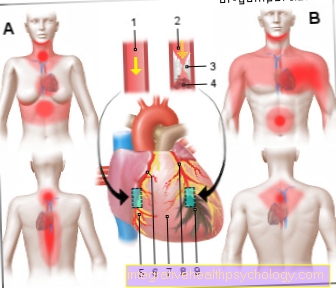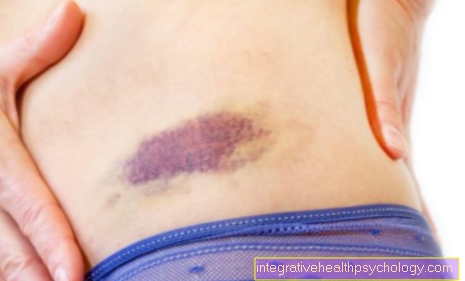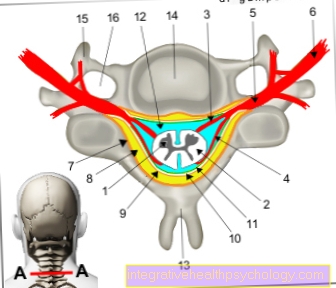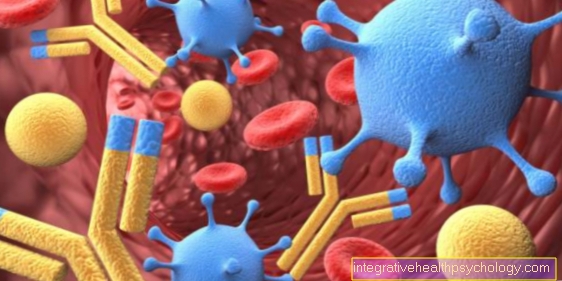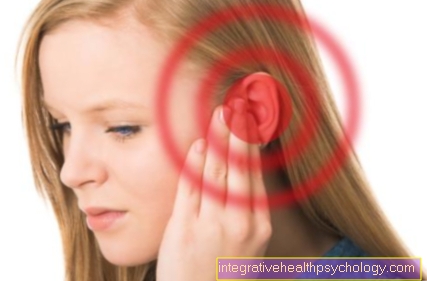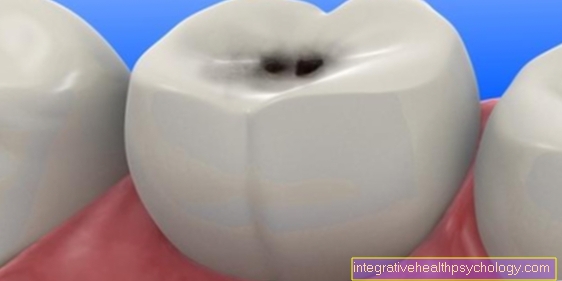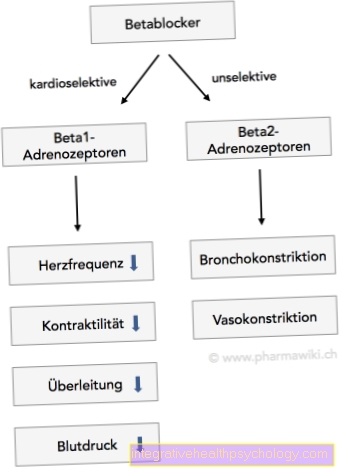Side effects from vaccinations in the baby
introduction
The vaccines used today are subject to strict requirements and are generally well tolerated. However, there are still many critical voices warning against vaccinations for babies or children. Viewed objectively, however, one can say that complications in addition to local irritation are extremely rare. Of course, fears about vaccinations in babies must be taken seriously. It is therefore important to educate people about the risks of vaccination and, in contrast, the higher risk for the corresponding diseases and their consequences if there is no vaccination. The advantages of a high vaccination rate for your own baby and the general public always outweigh the benefits.

What are the side effects?
The side effects of a vaccination can be further subdivided. First of all, one has to distinguish between vaccine reactions, vaccine diseases, complications and unproven claims.
Vaccination reactions are the most common side effects of a vaccination (1: 100). They are differentiated again depending on the time of their occurrence, whereby there are no differences to other age groups. As a result of the pain of the injection, babies may cry out loud and shrill for longer periods of time. Faint-like conditions or fainting (syncope) occur. The harbingers of this circulatory failure include increased cold sweats, paleness and dizziness. This reaction is common in adolescents and young adults. Circulatory reactions immediately after vaccination are extremely rare in babies. They are more likely to be limp and exhausted. But this is nothing to worry about. Only in the case of some premature babies who, for example, had a breathing problem after birth, is the first vaccination carried out under inpatient supervision as a precaution. Because these babies sometimes experience drops in heart rate or oxygen after vaccination, unlike babies born at maturity. The hospital can then react promptly.
Redness, swelling or pain may occur at the vaccination site within the first three days after vaccination. In addition, general symptoms such as increased temperature, cold-like symptoms or gastrointestinal problems with diarrhea and vomiting can occur.
Vaccine diseases occur after vaccination with a live vaccine, such as the MMR vaccine. For example, measles-mumps-rubella vaccination can occur in babies about one to four weeks after vaccination. The frequency of these vaccine diseases is max. 5%.
Read more on the topic: Kolpikflecken
The vaccination complications are febrile seizures, nerve inflammation (neuritis) or the allergic reaction. This is to be distinguished from the very rare vaccine damage, which results in permanent health impairment. In the event of vaccination damage, there is an obligation to report to the health department.
Side effects for which there is no evidence and which are reported purely hypothetically without any scientific basis often stir up unnecessary fears. For example, there is no well-founded evidence that after an MMR vaccination, autism, inflammatory bowel disease or diabetes develop in childhood. Such assertions always have to be questioned critically. Older vaccines that often caused complications were those for smallpox, tuberculosis, and polio. Nowadays, vaccination against smallpox and tuberculosis is no longer recommended and the polio vaccine has been replaced by a safe vaccine.
What are the causes?
The most common complaints that almost every adult knows after vaccination are Redness, swelling and Pain over the injection site. This is as harmless To evaluate the reaction of the immune system. Rather, the local reaction that can also occur in babies proves that immune system good and adequate to the vaccine responds and build a necessary defense. As well cold-like complaints such as headache and body aches, fever and malaise can be considered General reaction of the body are counted on the vaccine and are harmless.
Are you interested in the functions of the immune system? Read our article on the immune system.
In addition to these reactions, which represent a confrontation of the body with the vaccine, there are Complicationsthat are typical of individual vaccinations. At a Live vaccination For example, weakened pathogens are injected. This can take place after a few weeks mild forms the teething problems occur. However, these are not contagious and will go away on their own.
Allergic reaction against vaccinations are extremely rare. The main cause is then that contained in the vaccination Egg white if you have a chicken protein allergy. In some vaccines are aluminum or mercury contain. However, the concentration is very low. Several internationally recognized institutions such as the WHO or the EMA have independently shown in studies that these do not cause health damage or provoke autism. Since many parents are very afraid of these substances, vaccinations are now available for everyone Vaccines available without added mercury.
Duration of side effects
The Redness, swelling or the Pain last at the puncture site rarely longer than 48 hours. After that, the finding has mostly disappeared or has decreased significantly. If there is an inflammation of the area with significant overheating and tenderness to pressure, a presentation should be made to the pediatrician who also carried out the vaccination. Febrile reactions hold mostly no longer than 24 hours on. If the fever cannot be lowered and lasts for three days, a feverish infection and no vaccination reaction can be assumed. The pediatrician should clarify the situation. The Vaccine fibers is usually preceded by a feeling of illness lasting up to 10 days. The vaccine fibers can then up to one week stop and disappear on their own.
Side effects
fever

As already described, various general reactions can occur when the body deals with the vaccine. It usually comes to a light to moderate Temperature rise up to fever. This body reaction can be classified as harmless and only shows that the immune system is responding to the vaccination. The babies are then often very limp and the Drinking behavior can be restricted be. Antipyretic measures should be initiated. As soon as the fever drops, the babies feel much better. However, the fever can also trigger one Febrile seizure to be with the baby. The vaccination is not a direct trigger of a seizure and therefore cannot cause epilepsy. Febrile seizures are in the dated age group 6 months to 5 years of age quite often and in 95% of the cases without further consequences.
Further information on the subject can be found at: Fever in baby after vaccination
diarrhea
Gastrointestinal complaints can occur as a further general reaction of the body. In babies, this often manifests itself in a lack of appetite or nausea through restricted drinking behavior. In addition, vomiting and diarrhea can occur. These complaints are self-limiting, so they go away quickly after a few days. If the baby does not take in enough fluid and if a lot of fluid is also lost due to diarrhea, there is a risk of dehydration (Desiccosis). In this case, infusion therapy in the hospital is necessary.
Diarrhea is one of the side effects of vaccinations in babies. Read our main article about this: Diarrhea After Vaccination In Baby - Is It Dangerous?
Scream
Many parents want to save their baby the pain and stress of vaccination. There are now various strategies to vaccinate the child as gently as possible. The recommendations relate to specific Spraying techniques or different Diversionary maneuvers depending on the age of the child. From the 4th month of life you can even pain reliever plasters are used. Breast-fed babies can get most vaccinations simultaneous breastfeeding be reassured. If the baby is no longer breastfed, a Sugar solution be a good alternative on the pacifier. Despite all strategies many of the children shout before, during and after vaccination. Loud, high-pitched and seemingly insatiable screaming that persists for a long time after a vaccination can also be seen as a general reaction to the vaccination in babies. Overall, however, this reaction is rather rare.
fatigue
Babies are often weak and exhausted after vaccination. Fatigue after a vaccination in babies is a non-specific and just as harmless reaction of the body. The immune system works at full speed and that of course makes the body tired and dull at first.
Vomit
After vaccination in babies, nausea and vomiting can occur as non-specific general reactions. However, after a few days, the vomiting should go away. Of course, there must also be different ones Differential diagnoses get noticed. Longer lasting Vomiting with diarrhea often suggests that the baby is one Gastrointestinal virus and the timing of the vaccination is rather coincidental. Only vomiting or increased spitting occurs in the baby gush-like after meals, there is one in babies in the first few weeks of life Tightness or a passage obstruction in the gastrointestinal tract into consideration. Persistent vomiting so babies always need another one Clarification by the pediatrician.
Treatment / therapy
Treatment of vaccine reactions is purely symptomatic. Antipyretic agents may be administered at elevated temperatures after vaccination. If the vaccination site is red and swollen, cooling or anti-inflammatory creams can provide relief. If the baby is very tired and limp after the vaccination, it should be given sufficient recovery time. It will recover quickly from the vaccination effort.If the gastrointestinal tract complains, the most important measure is that the baby drinks enough to avoid dehydration. Medicines for diarrhea or vomiting should not be given. Vaccination reactions usually end quickly by themselves. If a vaccine disease occurs, such as vaccine measles, only symptom-relieving measures such as lowering the fever help. The vaccine diseases, like the vaccination reactions, are quickly overcome. Specific treatment is not necessary.


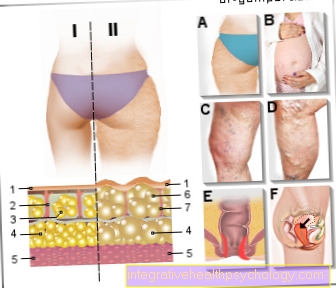

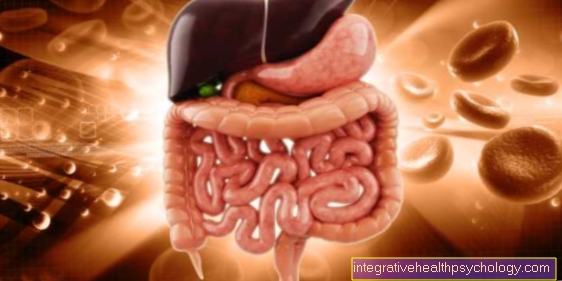

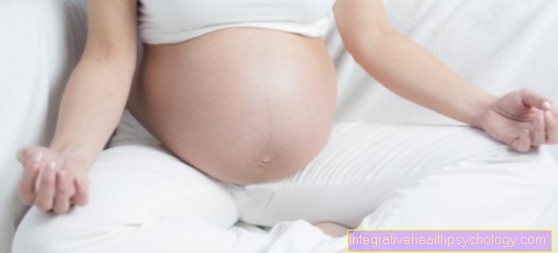

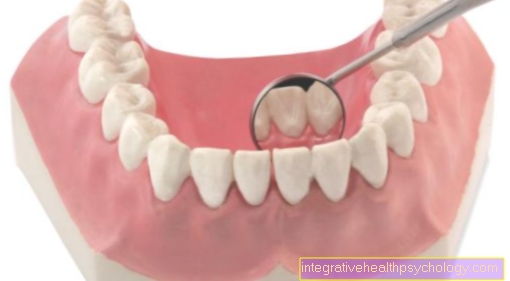

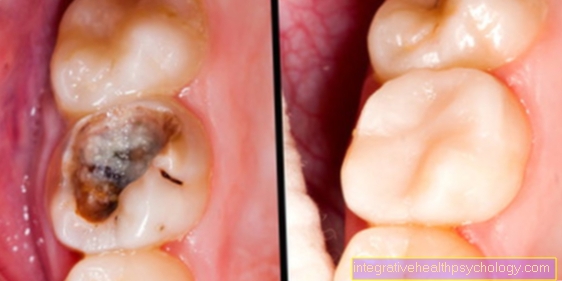

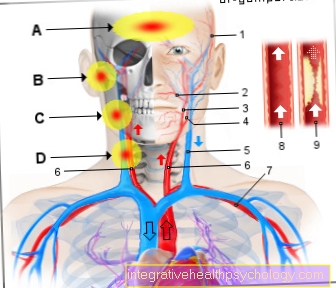

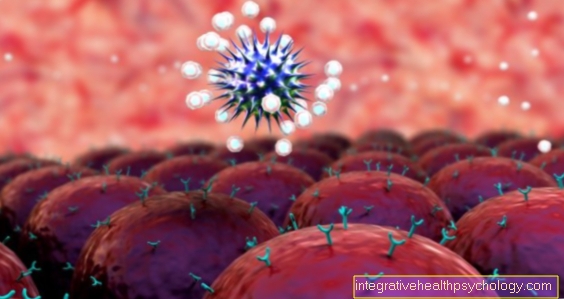
.jpg)


